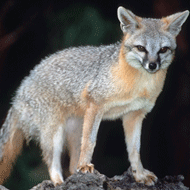
Strain is “significantly distinct” from vaccines, scientists say
A new strain of canine distemper virus has been found in wild animals in New Hampshire and Vermont, scientists have revealed.
The distinct virus strain was detected over a one-year period in eight animals, including three fishers, two gray foxes, one skunk, one raccoon and one mink.
All eight were infected with a strain that has only been seen in a single raccoon in Rhode Island in 2004. It had not previously been described in any publication.
Senior veterinary pathologist David Needle, of the University of New Hampshire, said this strain is “significantly distinct” from vaccine strains. The findings have been reported in the Journal of Veterinary Diagnostic Investigation.
Professor Needle added: “This can and may already be having an impact on the population of wild mesocarnivores in New Hampshire and New England.
“These animals are an integral part of the varied ecosystems of wild New Hampshire and New England, filling important niches in predator-prey relationships and pest control. Any decrease in wildlife populations is a loss to the rich wild diversity.”
Image © California Department of Water Resources/Wikimedia Commons



 The Veterinary Medicines Directorate (VMD) is inviting applications from veterinary students to attend a one-week extramural studies (EMS) placement in July 2026.
The Veterinary Medicines Directorate (VMD) is inviting applications from veterinary students to attend a one-week extramural studies (EMS) placement in July 2026.